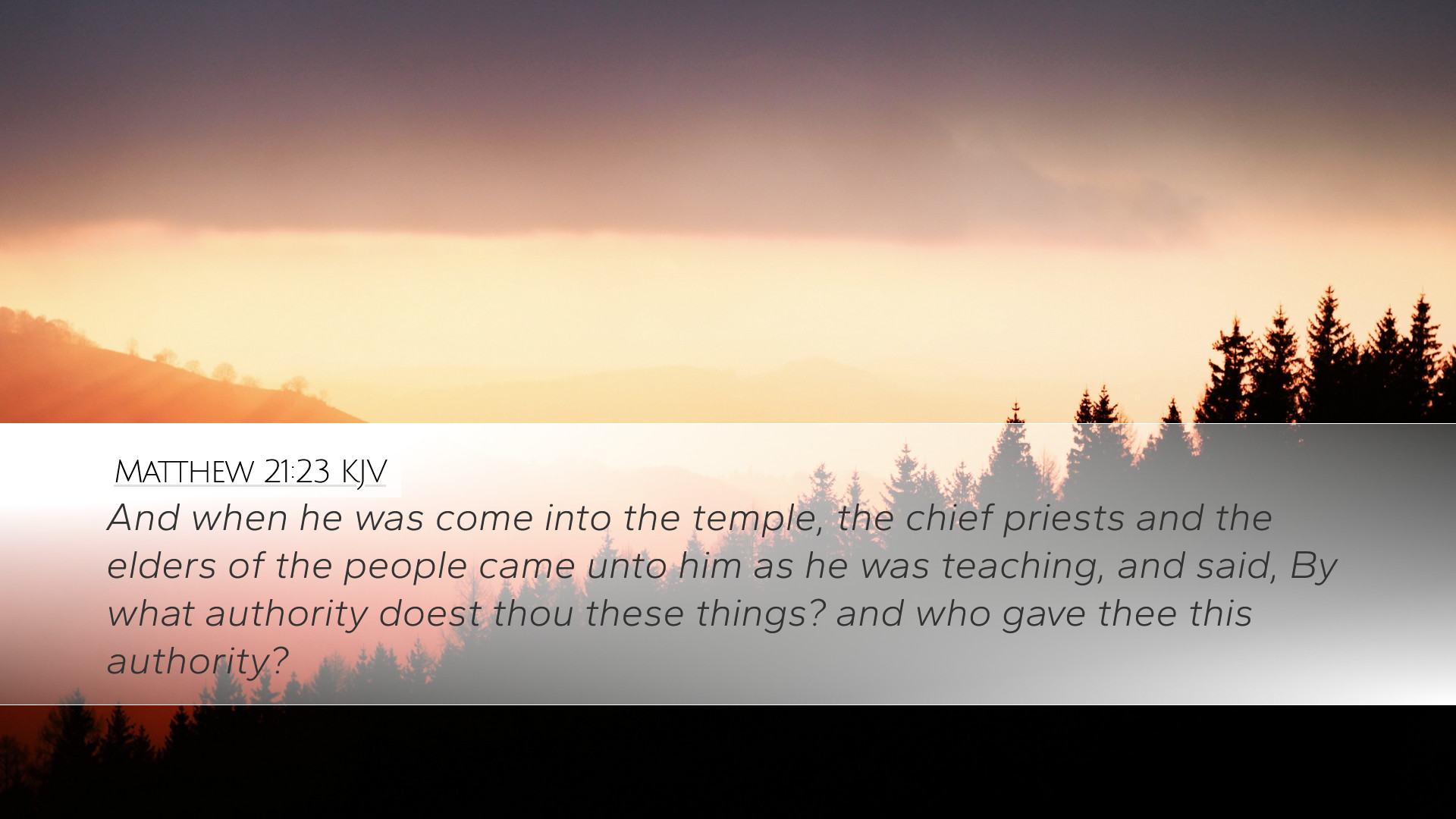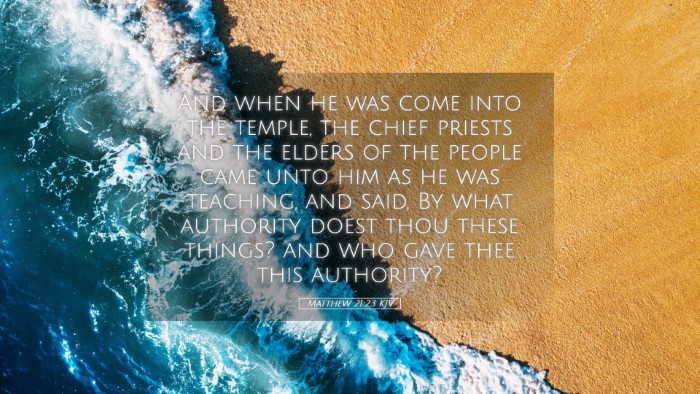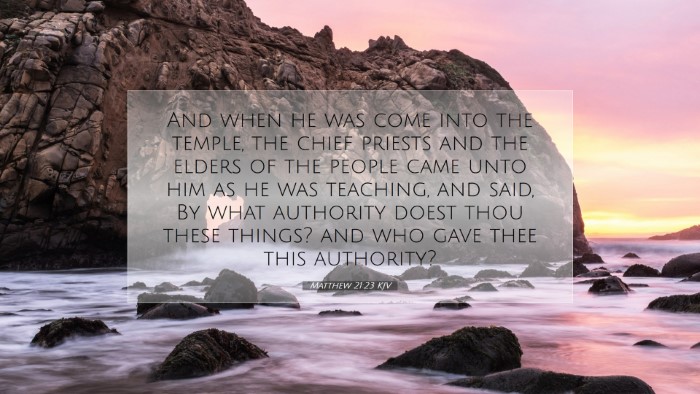Commentary on Matthew 21:23
Verse Reference: Matthew 21:23 - "And when he was come into the temple, the chief priests and the elders of the people came unto him as he was teaching, and said, By what authority doest thou these things? and who gave thee this authority?"
Contextual Analysis
Matthew 21:23 is situated in a pivotal moment in the ministry of Jesus as He confronts the religious leaders of His time. Understanding the context is critical for a comprehensive analysis:
- Triumphal Entry: This episode follows the triumphant entry into Jerusalem (Matthew 21:1-11), where Jesus is hailed as the Messiah. This event set the stage for increasing tension with the religious authorities.
- Cleansing of the Temple: Immediately prior, Jesus cleansed the temple (Matthew 21:12-16), establishing His authority and denouncing commercial practices that had overtaken sacred space.
- Teachings and Miracles: This passage reveals Jesus engaging in teaching and miraculous works that raise questions among the chief priests and elders, who are threatened by His influence.
The Inquisition of Authority
The inquiry initiated by the chief priests and elders about Jesus' authority serves several key roles:
- Challenge to Legitimacy: By questioning His authority, the religious leaders aim to undermine Jesus' credibility and legitimacy among the people.
- Source of Authority: They require clarity on who has sanctioned Jesus' actions, attempting to draw Him into a theological or legal trap.
- Polemical Intent: This approach demonstrates their intent to protect their own institutional power and challenge any new authority that threatens their position.
Insights from Commentaries
Matthew Henry's Concise Commentary
Henry comments on this passage as a reflection of the anxiety and pride of the Jewish leaders. He notes:
- The audacity in asking Jesus about His authority illustrates their spiritual blindness and refusal to recognize the divine actions among them.
- Henry emphasizes that Jesus' authority was inherent, given by God, which the leaders failed to perceive.
Albert Barnes' Notes on the Bible
Barnes provides additional dimensions to the inquiry. He highlights:
- The challenge is not only about Jesus' actions but also implies the Jewish leaders' envy and desire for control over religious matters.
- He explains that the leaders' inquiry reveals a heart resistant to the divine mission of Jesus, a common theme within the Gospels.
Adam Clarke's Commentary
Clarke delves deeper into the sociopolitical implications of this interaction. He suggests:
- The phrase "By what authority" indicates a serious challenge rooted in their understanding of the Law, making it a theological dispute.
- Clarke observes the irony; the very leaders who are supposed to represent God's authority fail to recognize it in Christ.
Theological Implications
This verse has various theological implications that enrich the study of Christ’s authority:
- Christ’s Divine Authority: The passage affirms the recognition of divine authority and the challenge it poses to human institutions.
- Human Resistance: This inquiry reflects a broader human tendency to resist God's work, particularly through those in positions of power.
- Call to Discernment: Followers of Christ are encouraged to discern authority, acknowledging God’s presence in places where it is often rejected.
Application for Today
For pastors, students, theologians, and scholars, Matthew 21:23 serves as a call to engage with the question of authority in contemporary contexts:
- How do we recognize and submit to the authority of Christ in our lives, our churches, and our communities?
- In what ways do we challenge authority, both divine and human, and how can we ensure that our challenges are rooted in humility and truth?
- The encounter warns against becoming so entrenched in our positions that we fail to see God at work in ways that challenge our understanding and comfort.
Conclusion
The authority of Jesus as presented in Matthew 21:23 is a profound theme that transcends its immediate context, inviting ongoing reflection on divine authority throughout history. The questions posed by the chief priests and elders remain relevant today as communities and institutions grapple with recognizing and responding to God's work through Christ.


